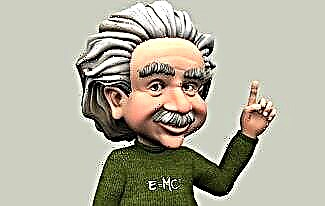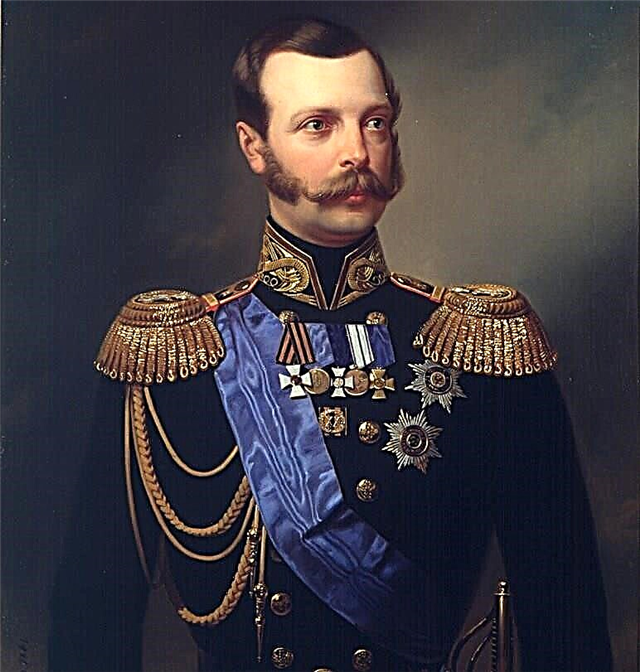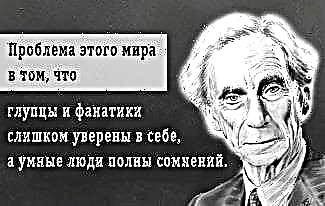Jan Hus (nee Jan from Gusinets; 1369-1415) - Czech preacher, theologian, thinker and ideologist of the Czech Reformation. National hero of the Czech people.
His teaching had a strong influence on the states of Western Europe. For his own beliefs, he was burned along with his labors at the stake, which led to the Hussite Wars (1419-1434).

There are many interesting facts in the biography of Jan Hus, which we will tell about in this article.
So, here is a short biography of Gus.
Biography of Jan Hus
Jan Hus was born in 1369 (according to other sources 1373-1375) in the Bohemian city of Husinets (Roman Empire). He grew up and was brought up in a poor peasant family.
When Jan was about 10 years old, his parents sent him to a monastery. He was an inquisitive child, as a result of which he received high marks in all subjects. After that, the young man went to Prague to continue his education.
Upon arrival in one of the largest cities in Bohemia, Hus managed to successfully pass the exams at the University of Prague. According to the teachers, he was distinguished by good behavior and a desire to acquire new knowledge. In the early 1390s, he received his BA in Theology.
A couple of years later, Jan Hus became a master of arts, which allowed him to lecture in front of the public. In 1400 he became a clergyman, after which he took up preaching work. Over time, he was entrusted with the post of dean of liberal arts.
In 1402-03 and 1409-10, Huss was elected rector of his native Prague University.
Preaching work
Jan Hus began preaching at about the age of 30. Initially, he gave speeches in the Church of St. Michael, and then became the rector and preacher of the Bethlehem Chapel. An interesting fact is that up to 3000 people came to listen to the priest!
It is worth noting that in his sermons he not only talked about God and his promises, but also criticized representatives of the clergy and large farmers.
At the same time, condemning the actions of the church, he called himself her follower, exposing the sins of the church and revealing human vices.
Back in the mid-1380s, the works of the English theologian and reformer John Wycliffe gained popularity in the Czech Republic. By the way, Wycliffe was the first translator of the Bible into Middle English. Later, the Catholic Church would call his writings heretical.
In his sermons, Jan Hus expressed ideas that were contrary to the policy of the papal curia. In particular, he condemned and called for the following:
- It is unacceptable to charge for the administration of ordinances and sell church offices. It is enough for a clergyman to charge a modest payment from wealthy people in order to provide himself with the most necessary things.
- You cannot blindly obey the church, but, on the contrary, each person should reflect on different dogmas, resorting to the advice from the New Testament: "If the blind lead the blind, then both will fall into the pit."
- Authority that does not keep God's commandments should not be recognized by Him.
- Only just people can own property. The unjust rich man is a thief.
- Any Christian should be in search of truth, even at the risk of well-being, peace and life.
In order to convey his ideas to the audience as best as possible, Huss ordered to paint the walls of the Bethlehem chapel with images with instructive subjects. He also composed several songs that quickly became popular.
Jan further reformed Czech grammar, making the books understandable even for uneducated people. It was he who was the author of the idea that each sound of speech was designated by a specific letter. In addition, he introduced diacritical marks (those that are written over letters).
In 1409, there were heated discussions at the University of Prague about the teachings of Wycliffe. It is worth noting that the Archbishop of Prague, like Hus, supported the ideas of the English reformer. During the debate, Yang openly stated that many of the teachings presented to Wycliffe were simply misunderstood.
Serious opposition from the clergy forced the archbishop to withdraw his support from Hus. Soon, by order of the Catholics, some of Jan's friends were detained and accused of heresy, who, under pressure, decided to renounce their views.
After this, antipope Alexander V issued a bull against Huss, which led to the ban on his sermons. At the same time, all of Jan's suspicious works were destroyed. However, the local authorities showed support for him.
Despite all the oppression, Jan Hus enjoyed great prestige among ordinary people. An interesting fact is that when he was forbidden to read sermons in private chapels, he refused to obey, appealing to Jesus Christ himself.
In 1411, the Archbishop of Prague Zbinek Zajic called Hus a heretic. When King Wenceslas IV, who was loyal to the preacher, found out about this, he called Zayits' words slander and ordered to deprive the possessions of those clergymen who spread this “slander”.

Jan Hus harshly criticized the sale of indulgences, by buying which a person allegedly freed himself from his sins. He also opposed the fact that representatives of the clergy raised the sword at their opponents.
The church began to persecute Hus even more, for which reason he was forced to flee to South Bohemia, where the local gentry did not obey the decrees of the pope.
Here he continued to denounce and criticize both ecclesiastical and secular authorities. The man called for the Bible to be the ultimate authority for clergy and church councils.
Condemnation and execution
In 1414, Jan Hus was summoned to the Cathedral of Constance, with the aim of stopping the Great Western Schism, which led to the Trinity-popes. It is curious that the German monarch Sigismund of Luxembourg guaranteed complete security for the Czech.
However, when Jan arrived in Constance and received a letter of protection, it turned out that the king had presented him with the usual travel letter. The Pope and the members of the council accused him of heresy and organizing the expulsion of the Germans from the University of Prague.

Then Gus was arrested and put in one of the rooms of the castle. Supporters of the convicted preacher accused the Council of violating the law and the royal oath of Jan's safety, to which the pope replied that he personally had not promised anything to anyone. And when they reminded Sigismund of this, he still did not defend the prisoner.
In mid-1415, the Moravian gentry, the Seimas of Bohemia and Moravia, and later the Czech and Polish nobility sent a petition to Sigismund demanding that Jan Hus be released, with the right to speak at the Council.
As a result, the king organized a hearing of the case of Hus at the cathedral, which took place over 4 days. Jan was sentenced to death, after which Sigismund and the archbishops repeatedly persuaded Hus to renounce his views, but refused.

At the end of the trial, the condemned again appealed to Jesus. On July 6, 1415, Jan Hus was burned at the stake. There is a legend that the old woman, out of pious intentions, planted brushwood in his fire, he allegedly exclaimed: "Oh, holy simplicity!"
The death of the Czech preacher led to the formation and strengthening of the Hussite movement in the Czech Republic and was one of the reasons for the outbreak of the Hussite wars, between his followers (Hussites) and Catholics. As of today, the Catholic Church has not rehabilitated Hus.
Despite this, Jan Hus is a national hero in his homeland. In 1918, the Czechoslovak Hussite Church was founded, which now has about 100,000 parishioners.
Photo by Jan Hus



















